Life
Sign up for our newsletter
We summarize the week's scientific breakthroughs every Thursday.
-
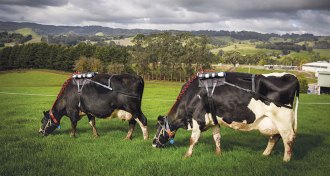 Animals
AnimalsGetting creative to cut methane from cows
Changing feed, giving vaccines and selective breeding may enable scientists to help beef and dairy cattle shake their title as one of society's worst methane producers.
By Laura Beil -
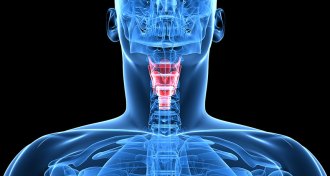 Health & Medicine
Health & MedicineEngineered vocal cords show promise in animal tests
Lab-grown vocal cord tissue could lead the way to better treatments for people with vocal problems
-
 Science & Society
Science & SocietyThe vagus is the nerve to know
The nervous system's meandering superhighway has the potential to lead researchers treatments for myriad health conditions.
By Eva Emerson -
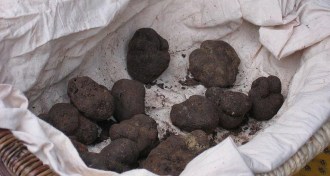 Life
LifeTruffles aren’t laced with radioactive cesium
Fallout from the Chernobyl disaster hasn’t made truffles dangerously radioactive, scientists find.
-
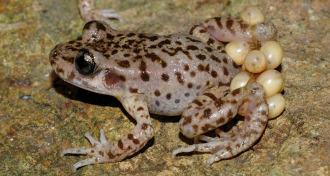 Animals
AnimalsPonds and their toads cured of dreaded disease
Treating both tadpoles and their ponds for infection by deadly Bd chytrid fungus lets midwife toads go wild again.
By Susan Milius -
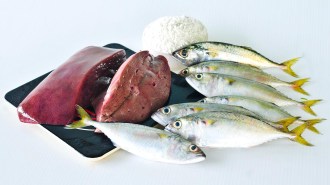 Health & Medicine
Health & MedicineWhen selenium is scarce, brain battles testes for it
In competition for selenium, testes draw the nutrient away from the brain.
-
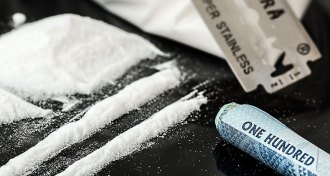 Psychology
PsychologyCaffeine gives cocaine an addictive boost
Not only is it popular to “cut” cocaine with caffeine, the combination might be more addictive.
-
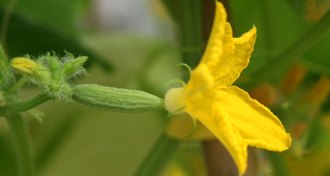 Plants
PlantsGenetic battle of the sexes plays out in cukes and melons
Genetics reveals new approach to preventing inbred seeds and encouraging more fruitful crops.
By Susan Milius -
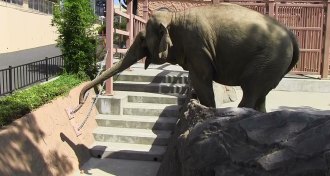 Animals
AnimalsHungry elephants turn trunks into leaf blowers
Darwin once observed an elephant using its trunk to blow an object closer. Japanese zoo elephants use the behavior to obtain food, a new study reports.
-
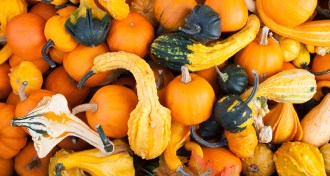 Plants
PlantsAncient gardeners saved the gourd
Domestication might have helped early vine plants like pumpkin survive after seed-dispersing megafauna went extinct.
-
 Plants
PlantsAncient gardeners saved the gourd
Domestication might have helped early vine plants like pumpkin survive after seed-dispersing megafauna went extinct.
-
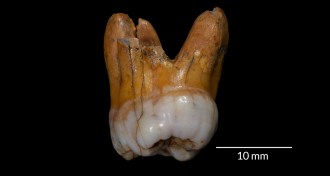 Anthropology
AnthropologyDNA puts Neandertal relatives in Siberia for 60,000 years
Recovered DNA suggests Denisovans inhabited Siberia for around 60,000 years.
By Bruce Bower